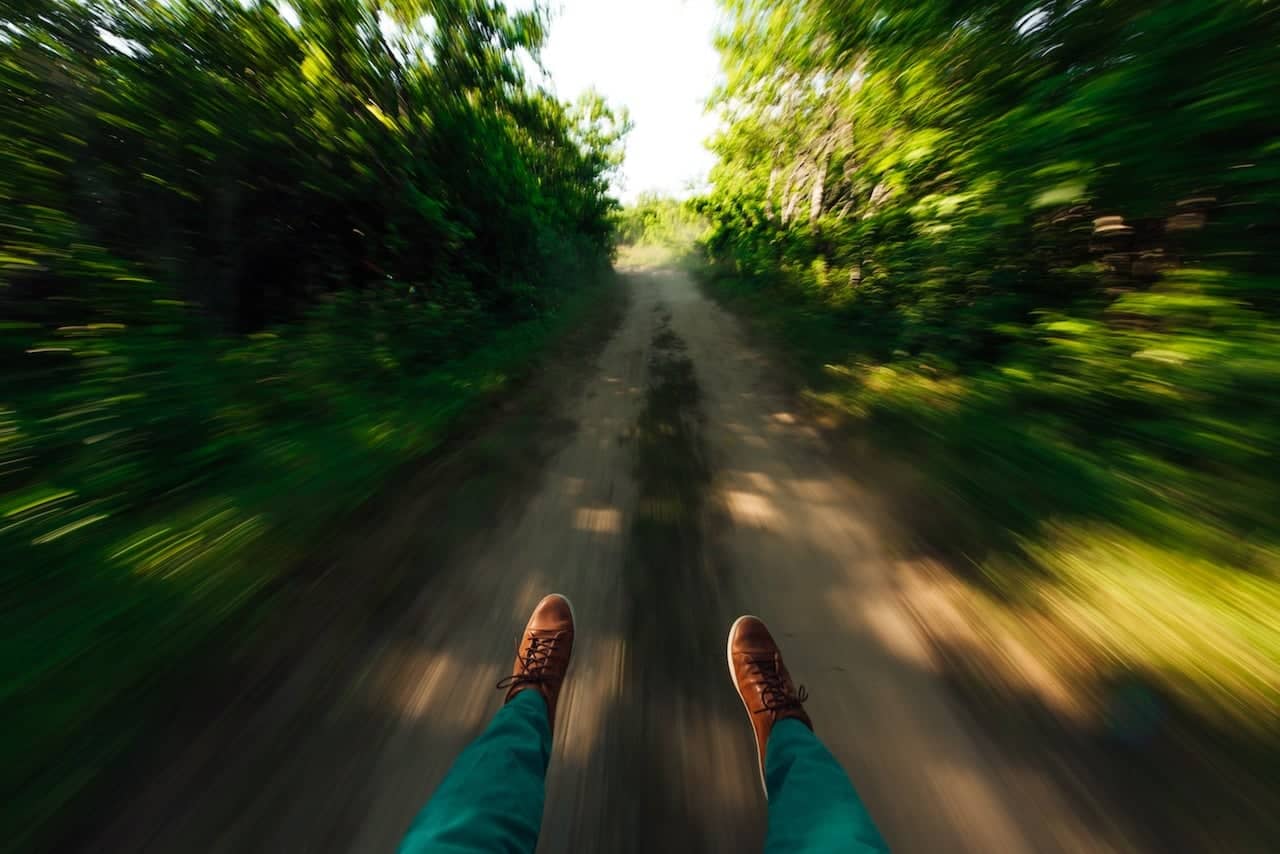Thinking vs. Action

Thanks to evolution, thinking has become our instinct and part of our consciousness. We were told by our parents, our teachers – Think before you act! Yet for adults, most of us overthink in nearly every situation. How do we balance thinking vs. action, and not hold ourselves back on the things we really should be doing to make a difference in our short and precious lives?
Growing up in China in the 1980s and 90s, I was among a rather conservative group of children and adults. After coming to the US when I was 17 to claim my independence and trying to “make it on my own”, I noticed the desire to fit in even when I’m in a different country. It wasn’t easy, because I didn’t look like many people around me while attending high school in Fryeburg, Maine. Population 3,449 (as of 2010).
I came to the States for two reasons. One was to pursue higher education and embrace multi-cultures. The other was to play ice hockey. The first was easy because I could quietly study as a student, earn good grades without anyone noticing. But the second was much trickier as Fryeburg Academy had a lot of emphasis on sports, and later I found out that I had to wear my jersey to school on game days.
The bottom line was that I didn’t think much when I signed up for the hockey team. In retrospect as a 34-year old today, I realized that “death or severe injuries” never even crossed my mind despite people getting knocked out unconscious in hockey games on TV, all the time. Nor did I think about if I qualify to play on a team. Frankly, I was nowhere near the top players who had a decade or more experience than I did. I was a total amateur, who had a great summer learning how to play in Beijing. where most people didn’t know what hockey was.
I was lucky enough to avoid permanent injuries for the entire winter season. Somehow I also left an impression which was later written in my yearbook by more than one person, along the line of: “Wow, Fei. I didn’t know Chinese people played hockey!”
Nearly two decades later, I often think to myself – what would I have done if I could to do it all over again? If I had children, would I allow them (or even encourage them) to do what I did?
It feels crazy why anyone in my position would do this. I could have easily embarrassed myself, my country, my ethnicity if I wasn’t the best player on the team (and I wasn’t or anywhere near it).
But hey, it’s nearly 20 years later and playing ice hockey in high school remains to be one of the most memorable and educational experiences in my life. Without overthinking the outcome, I took action.
This is how I felt
As an Asian female student at an American high school at the time, everyone was watching. If I had the choice, I much rather not make people pay attention to me.
This is the real situation
I was an international student who was part of an after-school program. Most people didn’t care or paid attention to what I was doing. The people who did notice me came to the games and shared those moments with me.
We all exaggerate the feelings of incompetence and the fear of disapproval, including me.
Over time, we become paralyzed by the idea of creating something on our own and putting it out to the world, where success is not guaranteed, and people are “watching and judging” anonymously.
For most of us, the new motto should be: Do More, Think Less (first), Strategize and Optimize (later). This is generally productive and good advice if you are not actively consuming illegal drugs, harming yourself or others.
I can also see people argue for the importance of thinking, deep thinking, strategic thinking before taking any action – I’m not against the theory, but rarely do people problem solve without taking actions, even if those actions are incredible small steps to test things out.
Furthermore, what I mean by “action” is NOT busy work. Taking action doesn’t mean that you should reply to that email ASAP, or blindly follow instructions without a good understanding the situation, or quickly pass on responsibilities to other so you don’t “take the blame”.
In fact, the real action is precisely the opposite of busy work. You own the responsibilities, you have done just enough thinking and research – in other words, you’ve got a compass but not a map, which is the case in most situations.

Your Action Item
Pick something you’d like to do, set aside 5 minutes each day (yes, just 5 minutes!). The idea is not to slow you down or to make you even more frustrated, but to take away excuses and time constraints (real or self-imposed).
After 1-2 weeks, you can build up to 10 minutes, 15 minutes a day to continue the action items you set out to do.
Once you are on that path, you could achieve much more and engage in a schedule that’s right for you. Creating a habit of action (rather than inaction or overthinking) is the key to living life on your own terms.
I’ll leave you with a favorite quote from the author of The Power of Habit: “The difference between who you are and who you want to be is what you do.”
Special thanks to Lisa Guida for encouraging me to write this post!
Zoom Webinar Tutorials for Hosts and Moderators






